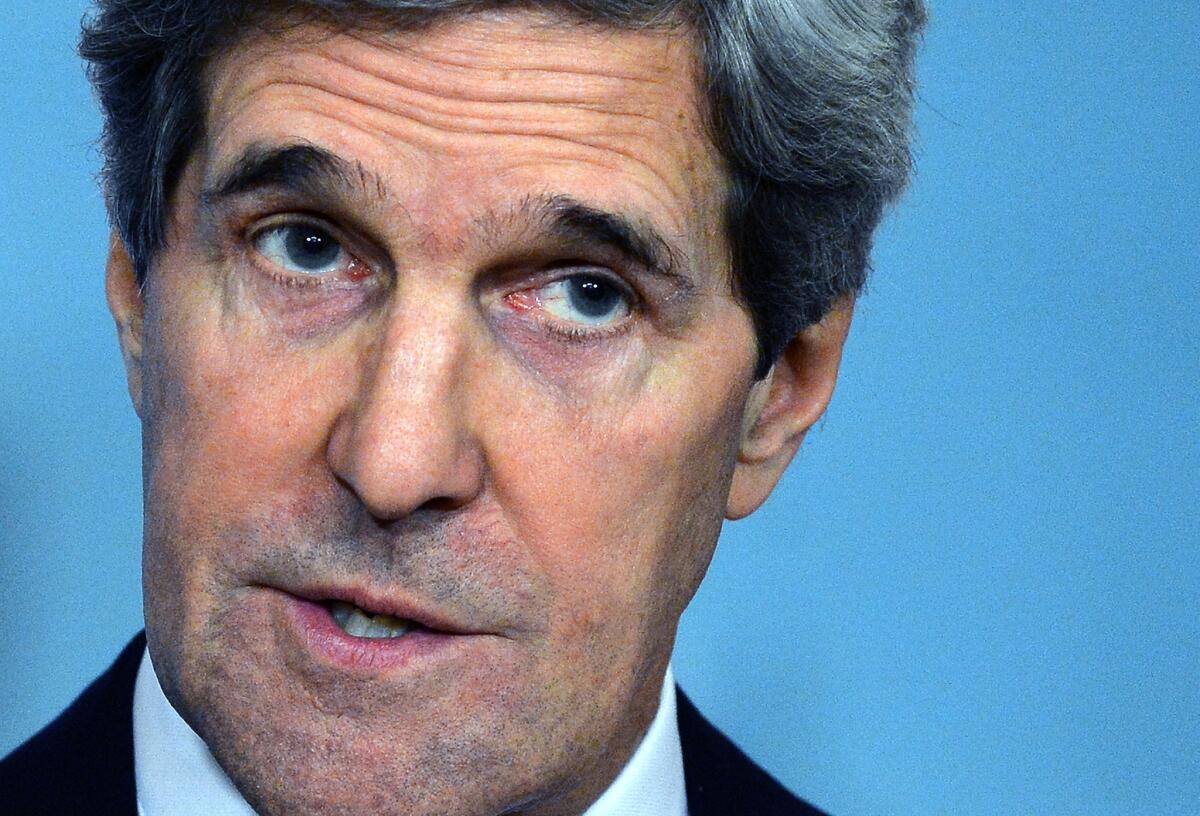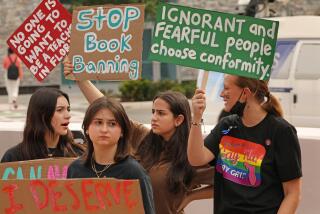Religious freedom under attack

- Share via
“Everyone has the right to freedom of thought, conscience and religion; this right includes freedom to change his religion or belief and freedom, either alone or in community with others and in public or private, to manifest his religion or belief in teaching, practice, worship and observance.”
So says the Universal Declaration of Human Rights adopted by the United Nations in 1948. But a voluminous report issued by the State Department last week demonstrates that those lofty principles continue to be widely dishonored. In some areas, the violations of religious liberty have increased, with a rise in sectarian violence, an increase in anti-Semitism and a proliferation of blasphemy laws that are used to suppress not only religious but political dissent.
The International Religious Freedom Report for 2012, which was released by Secretary of State John F. Kerry pursuant to a 1998 act of Congress, is unsparing in describing violations of religious freedom even in countries allied with the United States. For example, the report notes that Pakistan has been the scene of violence against Christians, Hindus and Shiite Muslims, and it accuses the government there of enacting intolerant laws. In Egypt, it says, there has been little accountability for perpetrators of religious violence. In Saudi Arabia, “the public practice of any religion other than Islam is prohibited, and the government enforced restrictions on religious freedom.”
Not all of the offenders were Islamic states. In China, one of eight nations designated as “countries of particular concern,” the government’s respect for religious freedom declined during 2012, according to the report, particularly in Tibet and the Xinjiang region, home to Muslim Uighurs. The report’s inventory of restrictions on religious freedom even included Belgium, where courts upheld a ban on face coverings that made no exception for Muslim women.
A major theme in this year’s report was the enactment of laws making it a crime to insult religion, which, as Kerry noted, “are frequently used to repress dissent, to harass political opponents and to settle personal vendettas.” Ironically, the same U.N. General Assembly that approved the Universal Declaration of Human Rights encouraged the enactment of blasphemy laws by voting three years ago to condemn the “defamation of religions.”
In the aftermath of the report’s release, some questioned its utility because it is primarily an exercise in information-gathering and does not trigger any sanctions. The same complaint is leveled against the State Department’s annual report on the state of human rights in various countries. But there is value in an objective and open-eyed accounting, even if U.S. diplomacy sometimes must be guided by factors other than a foreign nation’s respect for individual rights. And sometimes, though not often enough, governments can be shamed by the truth into changing their behavior.
More to Read
A cure for the common opinion
Get thought-provoking perspectives with our weekly newsletter.
You may occasionally receive promotional content from the Los Angeles Times.










